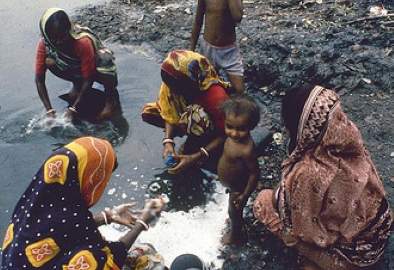In January-February 2011, GWP India did an extensive review of the policy, concluding that the IWRM concept and principles are widely debated and its success is questionable on many counts.
A WUG focus requires a lot of effort on the part of the State and the people. Whether the WUGs will be a legal entity with powers to own and manage village water resources remains to be answered. NGOs play a significant role in the formation and functioning of these groups because they are good at mobilization but they lack policy analysis and understanding of IWRM.
After the review, GWP India decided to enhance the capacity of NGOs, farmers, WUGs and the administrative officers of the State Government who are the key stakeholders in the planning, implementation and administration of the water resources projects and implementation of IWRM. Workshops are scheduled to take place in April-June 2011.

Building capacity among water users in Rajasthan
The new State Water Policy of Rajasthan, the largest state in India by area, puts the emphasis on two components: an integrated water resources management approach and the efficient working of Water User Groups (WUG). During 2010, GWP India with the support of its Northern Zone Water Partner, organized two workshops for the capacity building of NGOs involved in the implementation of the new policy.
